|
Books Should Be Free Loyal Books Free Public Domain Audiobooks & eBook Downloads |
|
|
Books Should Be Free Loyal Books Free Public Domain Audiobooks & eBook Downloads |
|
Plays |
|---|
|
Book type:
Sort by:
View by:
|
By: Clyde Fitch (1865-1909) | |
|---|---|
 The Climbers A Play in Four Acts
The Climbers A Play in Four Acts
| |
By: George Colman (1762-1836) | |
|---|---|
 John Bull Or, The Englishman's Fireside: A Comedy, in Five Acts
John Bull Or, The Englishman's Fireside: A Comedy, in Five Acts
| |
By: Arthur Acheson (1864-1930) | |
|---|---|
 Shakespeare's Lost Years in London, 1586-1592
Shakespeare's Lost Years in London, 1586-1592
| |
By: James Nelson Barker (1784-1858) | |
|---|---|
 The Indian Princess La Belle Sauvage
The Indian Princess La Belle Sauvage
| |
By: J. Donkersley | |
|---|---|
 Athaliah A Tragedy, Intended For Reading Only, Translated Into English Blank Verse, From Racine (A. Gombert's Edition, 1825)
Athaliah A Tragedy, Intended For Reading Only, Translated Into English Blank Verse, From Racine (A. Gombert's Edition, 1825)
| |
By: Percival Wilde (1887-1953) | |
|---|---|
 The Noble Lord A Comedy in One Act
The Noble Lord A Comedy in One Act
| |
 The Reckoning A Play in One Act
The Reckoning A Play in One Act
| |
By: John Lydgate (1370?-1451?) | |
|---|---|
 Disguising at Hertford
Disguising at Hertford
| |
By: Olive Tilford Dargan (1869-1968) | |
|---|---|
 Semiramis and Other Plays
Semiramis and Other Plays
| |
By: Orrie Lashin | |
|---|---|
 Class of '29
Class of '29
| |
By: Constance D'Arcy Mackay (1887?-1966) | |
|---|---|
 Patriotic Plays and Pageants for Young People
Patriotic Plays and Pageants for Young People
| |
By: Dudley H. (Dudley Howe) Miles (1881-) | |
|---|---|
 How to Write a Play Letters from Augier, Banville, Dennery, Dumas, Gondinet, Labiche, Legouvé, Pailleron, Sardou and Zola
How to Write a Play Letters from Augier, Banville, Dennery, Dumas, Gondinet, Labiche, Legouvé, Pailleron, Sardou and Zola
| |
By: Mercy Otis Warren (1728-1814) | |
|---|---|
 The Group A Farce
The Group A Farce
| |
By: Eugene Walter (1874-1941) | |
|---|---|
 The Easiest Way Representative Plays by American Dramatists: 1856-1911
The Easiest Way Representative Plays by American Dramatists: 1856-1911
| |
By: Marion Craig Wentworth (1872-) | |
|---|---|
 War Brides: A Play in One Act
War Brides: A Play in One Act
| |
By: John Todhunter (1839-1916) | |
|---|---|
 The Black Cat A Play in Three Acts
The Black Cat A Play in Three Acts
| |
By: Jesse Lynch Williams (1871-1929) | |
|---|---|
 Why Marry?
Why Marry?
Why Marry? is a comedy, which "tells the truth about marriage". We find a family in the throes of proving the morality of marriage to a New Age Woman. Can the family defend marriage to this self-supporting girl? Will she be convinced that marriage is the ultimate sacredness of a relationship or will she hold to her perception that marriage is the basis of separating two lovers."Why Marry?" won the first Pulitzer Prize for Drama. | |
By: Thomas Dekker (1572?-1632) | |
|---|---|
 The Noble Spanish Soldier
The Noble Spanish Soldier
| |
By: H. H. (Hugh Henry) Brackenridge (1748-1816) | |
|---|---|
 The Battle of Bunkers-Hill
The Battle of Bunkers-Hill
| |
By: Emlyn Williams (1905-1987) | |
|---|---|
 Night Must Fall : a Play in Three Acts
Night Must Fall : a Play in Three Acts
| |
By: Thomas Morton (1764-1838) | |
|---|---|
 Speed the Plough A Comedy, In Five Acts; As Performed At The Theatre Royal, Covent Garden
Speed the Plough A Comedy, In Five Acts; As Performed At The Theatre Royal, Covent Garden
| |
By: Clements R. (Clements Robert) Markham (1830-1916) | |
|---|---|
 Apu Ollantay A Drama of the Time of the Incas
Apu Ollantay A Drama of the Time of the Incas
| |
By: John Jay Chapman (1862-1933) | |
|---|---|
 The Treason and Death of Benedict Arnold A Play for a Greek Theatre
The Treason and Death of Benedict Arnold A Play for a Greek Theatre
| |
By: Joseph Harris (1650?-1715?) | |
|---|---|
 The City Bride (1696) Or The Merry Cuckold
The City Bride (1696) Or The Merry Cuckold
| |
By: Charles Mair (1838-1927) | |
|---|---|
 Tecumseh : a Drama
Tecumseh : a Drama
| |
By: William Dunlap (1766-1839) | |
|---|---|
 André
André
| |
By: Montrose Jonas Moses (1878-1934) | |
|---|---|
 Representative Plays by American Dramatists 1765-1819
Representative Plays by American Dramatists 1765-1819
| |
By: Lewis Morris (1833-1907) | |
|---|---|
 Gycia A Tragedy in Five Acts
Gycia A Tragedy in Five Acts
| |
By: John Leacock (1729-1802) | |
|---|---|
 The Fall of British Tyranny American Liberty Triumphant
The Fall of British Tyranny American Liberty Triumphant
| |
By: Geraldine Mockler | |
|---|---|
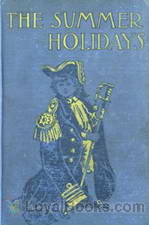 A Tale of the Summer Holidays
A Tale of the Summer Holidays
| |
By: Arthur Murphy (1727-1805) | |
|---|---|
 The Grecian Daughter
The Grecian Daughter
| |
By: Alfred Sutro (1863-1933) | |
|---|---|
 Five Little Plays
Five Little Plays
British dramatist Alfred Sutro's collection contains five one act plays: "The Man in the Stalls," "A Marriage Has Been Arranged…", "The Man on the Kerb," "The Open Door," and "The Bracelet." The plays are performed by Amanda Friday, Libby Gohn, Elizabeth Klett, mb, Bob Neufeld, Caprisha Page, Bruce Pirie, and Algy Pug. | |
By: Arthur Davison Ficke (1883-1945) | |
|---|---|
 Mr. Faust
Mr. Faust
| |
By: Philippe de Mornay (1549-1623) | |
|---|---|
 A Discourse of Life and Death
A Discourse of Life and Death
| |
By: Charles Macklin (1697?-1797) | |
|---|---|
 The Covent Garden Theatre, or Pasquin Turn'd Drawcansir
The Covent Garden Theatre, or Pasquin Turn'd Drawcansir
| |
By: Jóhann Sigurjónsson (1880-1919) | |
|---|---|
 Modern Icelandic Plays Eyvind of the Hills; The Hraun Farm
Modern Icelandic Plays Eyvind of the Hills; The Hraun Farm
| |
By: Robert Rogers (1731-1795) | |
|---|---|
 Ponteach The Savages of America
Ponteach The Savages of America
| |
By: William Vaughn Moody (1869-1910) | |
|---|---|
 The Faith Healer A Play in Three Acts
The Faith Healer A Play in Three Acts
| |
By: Bronson Howard (1842-1908) | |
|---|---|
 The Autobiography of a Play Papers on Play-Making, II
The Autobiography of a Play Papers on Play-Making, II
| |
By: Eugène Brieux (1858-1932) | |
|---|---|
 Woman on Her Own, False Gods and The Red Robe Three Plays By Brieux
Woman on Her Own, False Gods and The Red Robe Three Plays By Brieux
| |
By: Thomas Godfrey (1736-1763) | |
|---|---|
 The Prince of Parthia A Tragedy
The Prince of Parthia A Tragedy
| |
By: Frederick S. (Frederick Samuel) Boas (1862-1957) | |
|---|---|
 The Tragedy Of Caesar's Revenge
The Tragedy Of Caesar's Revenge
| |
By: Frederick Peterson (1859-1938) | |
|---|---|
 The Flutter of the Goldleaf; and Other Plays
The Flutter of the Goldleaf; and Other Plays
| |
By: M. M. (Mordecai Manuel) Noah (1785-1851) | |
|---|---|
 She Would Be a Soldier The Plains of Chippewa
She Would Be a Soldier The Plains of Chippewa
| |
By: Kenneth McGaffrey (??-1938) | |
|---|---|
 The Sorrows of a Show Girl
The Sorrows of a Show Girl
Originally printed in The Morning Telegraph in New York, this is the story of Miss Sabrina, the show girl, and her ups and downs with the unpredictable theatrical industry and the Great White Way, the lights and glamour of Broadway. "In order to set myself right with both the public and the vast army of Sabrinas that add youth and beauty to our stage, and brilliancy and gaiety to our well known cafes, I wish to say that she is all that she should be...”- Kenneth McGaffrey | |
By: Rutherford Mayne (1878-1967) | |
|---|---|
 The Turn of the Road A Play in Two Scenes and an Epilogue
The Turn of the Road A Play in Two Scenes and an Epilogue
| |
 The Drone A Play in Three Acts
The Drone A Play in Three Acts
| |
By: Henry Neville Payne (fl. 1672-1710) | |
|---|---|
 The Fatal Jealousie (1673)
The Fatal Jealousie (1673)
| |
By: Samuel Low (1765-) | |
|---|---|
 The Politician Out-Witted
The Politician Out-Witted
| |
By: Gorges Edmond Howard (1715-1786) | |
|---|---|
 The Female Gamester
The Female Gamester
| |
By: Wilfrid Wilson Gibson (1878-1962) | |
|---|---|
 Krindlesyke
Krindlesyke
| |
By: Michael Strange | |
|---|---|
 Clair de Lune A Play in Two Acts and Six Scenes
Clair de Lune A Play in Two Acts and Six Scenes
| |
By: Stephen Phillips (1864-1915) | |
|---|---|
 Nero
Nero
| |
By: Thomas Baker (fl. 1700-1709) | |
|---|---|
 The Fine Lady's Airs (1709)
The Fine Lady's Airs (1709)
| |
By: Unknown | |
|---|---|
 Everyman
Everyman
The Somonyng of Everyman (The Summoning of Everyman), usually referred to simply as Everyman, is a late 15th-century English morality play. Like John Bunyan's novel Pilgrim's Progress, Everyman examines the question of Christian salvation by use of allegorical characters, and what Man must do to attain it. The premise is that the good and evil deeds of one's life will be tallied by God after death, as in a ledger book. The play is the allegorical accounting of the life of Everyman, who represents all mankind... | |
By: William Shakespeare (1564-1616) | |
|---|---|
 Coriolanus
Coriolanus
Shakespeare was passionately interested in the history of Rome, as is evident from plays like Titus Andronicus, Julius Caesar, and Antony and Cleopatra. His tragedy Coriolanus was probably written around 1605-07, and dramatizes the rise and fall of a great Roman general, Caius Martius (later surnamed Coriolanus because of his military victory at Corioli). This play is unusual in that it provides a strong voice for the ordinary citizens of Rome, who begin the play rioting about the high price of food, and who continually clash with Coriolanus because of his contempt for plebians. | |
By: Ben Jonson (1572-1637) | |
|---|---|
 The Alchemist
The Alchemist
An outbreak of plague in London forces a gentleman, Lovewit, to flee temporarily to the country, leaving his house under the sole charge of his butler, Jeremy. Jeremy uses the opportunity given to him to use the house as the headquarters for fraudulent acts. He transforms himself into 'Captain Face', and enlists the aid of Subtle, a fellow conman and Dol Common, a prostitute. In The Alchemist, Jonson unashamedly satirizes the follies, vanities and vices of mankind, most notably greed-induced credulity... | |
By: Various | |
|---|---|
 One-Act Play Collection 003
One-Act Play Collection 003
This collection of ten one-act dramas features plays by Edward Goodman, Alice Gerstenberg, Arnold Bennett, John Galsworthy, Anton Chekhov, Frank Wedekind, Moliere, Theresa Helburn, John Kendrick Bangs, and Harold Brighouse. | |
By: Euripides (480-406 BC) | |
|---|---|
 Medea
Medea
Euripides' tragedy focuses on the disintegration of the relationship between Jason, the hero who captured the Golden Fleece, and Medea, the sorceress who returned with him to Corinth and had two sons with him. As the play opens, Jason plans to marry the daughter of King Creon, and the lovesick Medea plots how to take her revenge. | |
By: Molière | |
|---|---|
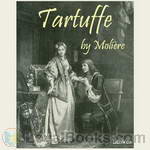 Tartuffe
Tartuffe
Jean-Baptiste Poquelin, known by his stage name Molière, was a French playwright and actor who is considered to be one of the greatest masters of comedy in Western literature. Among Molière's best-known works is Tartuffe or The Hypocrite, written in 1664. Though Tartuffe was received well by the public and even by Louis XIV, its popularity was lessened when the Archbishop of Paris issued an edict threatening excommunication for anyone who watched, performed in, or read the play.Tartuffe, a pious fraud who pretends to speak with divine authority, has insinuated himself into the household of Orgon... | |
By: Upton Sinclair (1878-1968) | |
|---|---|
 The Machine
The Machine
Upton Sinclair is best known for his novel The Jungle, an expose of the meatpacking industry. He was also a playwright whose works for the stage reflected the same progressive viewpoints found in his other writing. In The Machine, published as part of Sinclair's 1912 collection Plays of Protest, Socialist activists show a rich man's daughter the truth about the society in which she has been raised. | |
By: Various | |
|---|---|
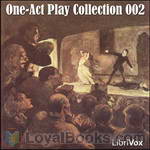 One-Act Play Collection 002
One-Act Play Collection 002
This collection of eight one-act dramas features plays by Eugene O'Neill, George Bernard Shaw, John Galsworthy, Susan Glaspell, William Dean Howells and John Millington Synge. It also includes a dramatic reading of a short story by Frank Richard Stockton. | |
By: Henrik Ibsen (1828-1906) | |
|---|---|
 The Wild Duck
The Wild Duck
The Wild Duck (1884) (original Norwegian title: Vildanden) is by many considered Ibsen's finest work, and it is certainly the most complex. It tells the story of Gregers Werle, a young man who returns to his hometown after an extended exile and is reunited with his boyhood friend Hjalmar Ekdal. Over the course of the play, the many secrets that lie behind the Ekdals' apparently happy home are revealed to Gregers, who insists on pursuing the absolute truth, or the "Summons of the Ideal". Among these truths: Gregers' father impregnated his servant Gina, then married her off to Hjalmar to legitimize the child... | |
By: Eugene O'Neill (1888-1953) | |
|---|---|
 Beyond the Horizon
Beyond the Horizon
Beyond the Horizon is a 1920 play written by American playwright Eugene O'Neill. It was O'Neill's first full-length work, and the winner of the 1920 Pulitzer Prize for Drama. The play focuses on the portrait of a family, and particularly two brothers Andrew and Robert. In the first act of the play, Robert is about to go off to sea with their uncle Dick, a sea captain while Andrew looks forward to marrying his sweetheart Ruth and working on the family farm as he starts a family. | |
By: William Shakespeare (1564-1616) | |
|---|---|
 Pericles, Prince of Tyre
Pericles, Prince of Tyre
Pericles, Prince of Tyre is a Jacobean play written at least in part by William Shakespeare and included in modern editions of his collected works despite questions over its authorship, as it was not included in the First Folio. Modern editors generally agree that Shakespeare is responsible for almost exactly half the play—827 lines—the main portion after scene 9 that follows the story of Pericles and Marina. Modern textual studies indicate that the first two acts of 835 lines detailing the many voyages of Pericles were written by a mediocre collaborator, which strong evidence suggests to have been the victualler, pander, dramatist and pamphleteer George Wilkins. | |
By: John Webster (1580-1634) | |
|---|---|
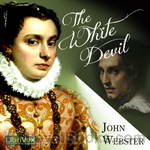 The White Devil
The White Devil
John Webster's The White Devil (1612) is a Jacobean revenge tragedy, replete with adultery, murder, ghosts, and violence. The Duke of Brachiano and Vittoria Corombona decide to kill their spouses, Isabella and Camillo, in order to be together, aided by the crafty and ambitious Flamineo, Vittoria's brother. Their actions prompt vows of revenge from Isabella's brother Francisco, the Duke of Florence, and Count Lodovico, who was secretly in love with her. The title refers to the early modern proverb that "the white devil is worse than the black," indicating the hypocrisy practiced by many of the characters in the play. | |
By: Thomas Middleton and Thomas Dekker | |
|---|---|
 The Roaring Girl
The Roaring Girl
The Roaring Girl is a rip-roaring Jacobean comedy co-written by Thomas Middleton and Thomas Dekker and first published in 1611. The play is a fictionalized dramatization of the life of Mary Frith, known as "Moll Cutpurse", a woman who had gained a reputation as a virago in the early 17th century. (The term "roaring girl" was adapted from the slang term "roaring boy", which was applied to a young man who caroused publicly, brawled, and committed petty crimes.) The play combines the exploits of the cross-dressed Moll with the amorous adventures of a trio of merchants' wives, and the forbidden romance between Sebastian Wengrave and Mary Fitzallard. | |
By: Henrik Ibsen (1828-1906) | |
|---|---|
 Rosmersholm
Rosmersholm
Rosmersholm is a play written in 1886 by Norwegian playwright Henrik Ibsen. In the estimation of many critics the piece is Ibsen’s masterwork, only equalled by The Wild Duck of 1884. As expressed by the protagonist, Rosmer, the theme of the play is social and political change, in which the traditional ruling classes relinquish their right to impose their ideals on the rest of society, but the action is entirely personal, resting on the conduct of the immoral, or amoral, “free thinking” heroine, Rebecca, who sets herself to undermine Rosmer’s religious and political beliefs because of his influential position in the community... | |
By: Unknown | |
|---|---|
 The Drama: A Quarterly Review
The Drama: A Quarterly Review
This is a collection of theatrical essays from the American quarterly The Drama, including six non-fiction works -- 3 profiles: Schnitzler, Andreyev, and O'Neill, and 3 articles: Characterization vs Situation, The Actor in England, & The Evolution of The Actor. | |
By: Arthur Wing Pinero (1855-1934) | |
|---|---|
 The Amazons: A Farcical Romance
The Amazons: A Farcical Romance
This 1895 farce inspired by the outlandish idea of women wearing pants, centers around the predicament of the three daughters of the eccentric Marchioness of Castlejordan, who determined to have sons, raised them like boys. She encouraged them to dress and act like boys at home, yet dress like ladies when out. As the girls come of age, they are conflicted. They want to please mother by acting as her sons, but, suddenly smitten with three gentlemen, they are compelled to grow up and be ladies. When their suitors secretly come to woo, they aren’t sure what to do……and what will mother do if she finds out? | |
By: Charles Dickens (1812-1870) | |
|---|---|
 The Strange Gentleman
The Strange Gentleman
Before he became a novelist, Dickens wrote several successful plays. This one from 1836, his first, he called, "A Comic Burletta in Two Acts". Characters arrive at a village inn called "The St. James Arms" and much confusion ensues. | |
By: Various | |
|---|---|
 One Act Play Collection 004
One Act Play Collection 004
This collection of twelve one-act dramas features plays by James Allen, John Kendrick Bangs, Gordon Bottomley, Charles Dickens, Lord Dunsany, Susan Glaspell, George Bernard Shaw, August Strindberg, Marion Craig Wentworth, and William Butler Yeats. The plays were coordinated by Elizabeth Barr, Margaret Espaillat, Amanda Friday, Elizabeth Klett, Kristingj, David Lawrence, Algy Pug, Todd, and Chuck Williamson. | |
By: Thomas Love Peacock (1785-1866) | |
|---|---|
 Headlong Hall
Headlong Hall
Headlong Hall is the first novel by Thomas Love Peacock, published in 1815 (dated 1816). As in his later novel Crotchet Castle, Peacock assembles a group of eccentrics, each with a single monomaniacal obsession, and derives humor and social satire from their various interactions and conversations. The setting is the country estate of Squire Harry Headlong Ap-Rhaiader, Esq. in Wales. | |
By: Unknown (495? BC - 406 BC) | |
|---|---|
 Oedipus King of Thebes Translated into English Rhyming Verse with Explanatory Notes
Oedipus King of Thebes Translated into English Rhyming Verse with Explanatory Notes
| |
By: William Shakespeare (1564-1616) | |
|---|---|
 Shakespearean Dialogues Collection
Shakespearean Dialogues Collection
This is a collection of scenes from Shakespeare's plays, mainly comprising dialogues between two characters. The theme for this collection is "Wooing, Wedding, and Repenting" (inspired by a line from Much Ado About Nothing). | |
By: Moliere (1622-1673) | |
|---|---|
 The Imaginary Invalid
The Imaginary Invalid
The Imaginary Invalid is a three-act comédie-ballet by the French playwright Molière. It was first performed in 1673 and was the last work he wrote. The plot centers around Argan, the 'imaginary invalid' who is completely dependent on his doctors and wants to marry his daughter to a doctor against her will, so that he will always have medical care freely available to him. In an ironic twist of fate, Molière collapsed during his fourth performance as Argan on 17 February and died soon after. | |
By: Molière (1622-1673) | |
|---|---|
 Miser
Miser
The Miser is a comedy of manners about a rich moneylender named Harpagon. His feisty children long to escape from his penny-pinching household and marry their respective lovers. Although the 17th-century French upper classes presumably objected to the play's message, it is less savage and somewhat less realistic than Molière's earlier play, Tartuffe, which attracted a storm of criticism on its first performance. | |
By: Thomas Middleton (1580-1627) | |
|---|---|
 Women Beware Women
Women Beware Women
Thomas Middleton's masterful 17th century tragedy is packed with adultery, incest, intrigue, revenge, and inventive methods for murder. Leantio elopes with Bianca against her family's wishes and tries to hide her in the house he shares with his widowed mother. Yet the Duke sees Bianca at the window and is powerfully attracted to her, threatening Leantio's security. Livia, a wealthy widow, delights in intrigue, aiding the Duke to satisfy his desires with Bianca, and bringing together her brother Hippolito with her niece Isabella, despite their familial relationship... | |
By: August Strindberg (1849-1912) | |
|---|---|
 The Ghost Sonata
The Ghost Sonata
The Ghost Sonata (Spoksonaten) is a play in three acts by Swedish playwright August Strindberg. Written in 1907, it was first produced at Strindberg's Intimate Theatre in Stockholm on 21 January 1908... The Ghost Sonata is a key text in the development of modernist drama and a vivid example of a chamber play. In it, Strindberg creates a world in which ghosts walk in bright daylight, a beautiful woman is transformed into a mummy and lives in the closet, and the household cook sucks all the nourishment out of the food before she serves it to her masters... | |
By: Frank Wedekind | |
|---|---|
 The Awakening of Spring
The Awakening of Spring
The Awakening of Spring is the German dramatist Frank Wedekind's first major play and a seminal work in the modern history of theatre. It is the source material for the contemporary rock musical Spring Awakening. The play criticises the sexually-oppressive culture of fin de siècle Germany and offers a vivid dramatisation of the erotic fantasies that it breeds. Due to the nature of its content, the play has often been banned. | |
By: Aeschylus (c. 525 BCE - c. 456 BCE) | |
|---|---|
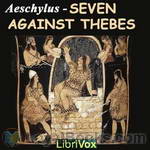 Seven Against Thebes
Seven Against Thebes
In this, the only extant tragedy from Aeschylus' trilogy about the House of Oedipus, Thebes is under siege from Polynices, a former prince of Thebes. After King Oedipus left his city and cursed the princes, Polynices and his brother, Eteocles, decided to rule alternately, switching at the end of every year. However, at the end of his year as king, Eteocles refused to turn power over to his brother and exiled him, fulfilling his father's curse that the two brothers could not rule peacefully. In the action of the play, Polynices and a group of Argive soldiers are attacking Thebes so that he can take his place as ruler... | |
By: Myrtle Reed (1874-1911) | |
|---|---|
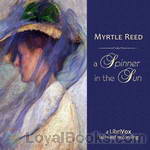 A Spinner in the Sun (dramatic reading)
A Spinner in the Sun (dramatic reading)
Myrtle Reed may always be depended upon to write a story in which poetry, charm, tenderness and humor are combined into a clever and entertaining book. Her characters are delightful and she always displays a quaint humor of expression and a quiet feeling of pathos which give a touch of active realism to all her writings. In "A Spinner in the Sun" she tells an old-fashioned love story, of a veiled lady who lives in solitude and whose features her neighbors have never seen. There is a mystery at the heart of the book that throws over it the glamour of romance. | |
By: Henry Fielding | |
|---|---|
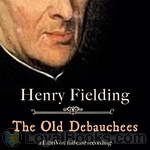 The Old Debauchees
The Old Debauchees
Young Laroon plans to marry Isabel, but Father Martin manipulates Isabel's father, Jourdain, in order to seduce Isabel. However, other characters, including both of the Laroons, try to manipulate Jourdain for their own ends; they accomplish it through disguising themselves as priests and using his guilt to convince him of what they say. As Father Martin pursues Isabel, she is clever enough to realize what is happening and plans her own trap. After catching him and exposing his lust, Father Martin is set to be punished. | |
By: Euripides (484 BC - 406 BC) | |
|---|---|
 Orestes
Orestes
In accordance with the advice of the god Apollo, Orestes has killed his mother Clytemnestra to avenge the death of his father Agamemnon at her hands. Despite Apollo’s earlier prophecy, Orestes finds himself tormented by Erinyes or Furies to the blood guilt stemming from his matricide. The only person capable of calming Orestes down from his madness is his sister Electra. To complicate matters further, a leading political faction of Argos wants to put Orestes to death for the murder. Orestes’ only hope to save his life lies in his uncle Menelaus, who has returned with Helen after spending ten years in Troy and several more years amassing wealth in Egypt... | |
By: Unknown (446? BC - 385? BC) | |
|---|---|
 The Birds
The Birds
| |
By: Stanley Houghton (1881-1913) | |
|---|---|
 Hindle Wakes (with accompanying essay)
Hindle Wakes (with accompanying essay)
Alan Jeffcote, son of Nat Hawthorn, Hindle's richest factory owner, meets Fanny Hawthorn, daughter of Nat's 'slasher' and oldest friend, in Blackpool and the two go off for what they believe to be secret fling in Llandudno. But after the death of Fanny's friend, Mary, in a pleasure boat accident at Blackpool the secret is revealed and the the two families are thrown into disarray. The leading light of the so-called Manchester School of realist dramatists, Stanley Houghton wrote Hindle Wakes in 1911 and it was a hit both in Mrs... | |
By: John Fletcher (1579-1625) | |
|---|---|
 The Woman's Prize, or The Tamer Tamed
The Woman's Prize, or The Tamer Tamed
John Fletcher's comedy (probably written and performed around 1611) is a sequel to Shakespeare's The Taming of the Shrew, in which, as the title suggests, the tamer will be tamed. Petruchio, the shrew-tamer, has been widowed, and marries a second wife, Maria, a "chaste witty lady." At the instigation of her cousin Bianca, and with the fellowship of her sister Livia, Maria decides to go on strike for equal rights, refusing to behave as a proper 17th century wife. Fletcher's play addresses the issue of men and women's roles within marriage, a controversial issue for his day. | |
By: Aeschylus (c. 525/524-456/455 BC) | |
|---|---|
 Prometheus Bound (Buckley Translation)
Prometheus Bound (Buckley Translation)
"Prometheus Bound" is the only complete tragedy of the Prometheia trilogy, traditionally assumed to be the work of Aeschylus. Jupiter has turned against Prometheus for protecting mankind and has ordered him to be chained to a rock. But Prometheus is comforted by his knowledge of a way to bring about the downfall of Jupiter. | |
By: Aristophanes (446-389 BCE) | |
|---|---|
 Frogs
Frogs
Athens is in a sorry state of affairs. The great tragedian, Euripides, is dead, and Dionysus, the god of the theater, has to listen to third-rate poetry. So, he determines to pack his belongings onto his trusty slave, Xanthias, and journey to the underworld to bring back Euripides! Hi-jinks ensue. | |
By: Nahum Tate (1652-1715) | |
|---|---|
 The History of King Lear
The History of King Lear
The History of King Lear is an adaptation by Nahum Tate of William Shakespeare's King Lear. It first appeared in 1681, some seventy-five years after Shakespeare's version, and is believed to have replaced Shakespeare's version on the English stage in whole or in part until 1838. Unlike Shakespeare's tragedy, Tate's play has a happy ending, with Lear regaining his throne, Cordelia marrying Edgar, and Edgar joyfully declaring that "truth and virtue shall at last succeed." Regarded as a tragicomedy, the play has five acts, as does Shakespeare's, although the number of scenes is different, and the text is about eight hundred lines shorter than Shakespeare's... | |
By: Gordon Bottomley (1874-1948) | |
|---|---|
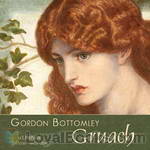 Gruach
Gruach
Gordon Bottomley's verse drama in two scenes is a prequel to Shakespeare's Macbeth. He provides Lady Macbeth with a name - Gruach - and imagines her family life and how she meets Macbeth. | |
By: Unknown (495? BC - 406 BC) | |
|---|---|
 Book of illustrations : ancient tragedy
Book of illustrations : ancient tragedy
| |
By: William Shakespeare (1554-1616) | |
|---|---|
 Two Noble Kinsmen
Two Noble Kinsmen
The Two Noble Kinsmen is a Jacobean tragicomedy co-written by William Shakespeare and John Fletcher, first published in 1634. Set in ancient Greece during a war between Athens and Thebes, the narrative follows the title characters, Palamon and Arcite, noble youths whose friendship is destroyed by their mutual love for the beautiful Emilia. The subplot deals with the love and eventual madness of the Gaoler's Daughter, who falls hopelessly in love with Palamon. The play is based on "The Knight's Tale" by Chaucer, but also has echoes of Shakespeare's A Midsummer Night's Dream, as two of the major characters are Theseus and Hippolyta, who also appear in the earlier play. | |
By: Unknown (446? BC - 385? BC) | |
|---|---|
 The Acharnians
The Acharnians
| |
By: William Shakespeare (1554-1616) | |
|---|---|
 Reign of King Edward the Third
Reign of King Edward the Third
| |
By: Various | |
|---|---|
 Washington Square Plays
Washington Square Plays
| |
By: Unknown (1622-1673) | |
|---|---|
 The Flying Doctor (Le Médecin Volant)
The Flying Doctor (Le Médecin Volant)
| |
 The Trojan Women of Euripides
The Trojan Women of Euripides
| |
 Sir John Oldcastle
Sir John Oldcastle
| |
 The Jealousy of le Barbouillé (La Jalousie du Barbouillé)
The Jealousy of le Barbouillé (La Jalousie du Barbouillé)
| |